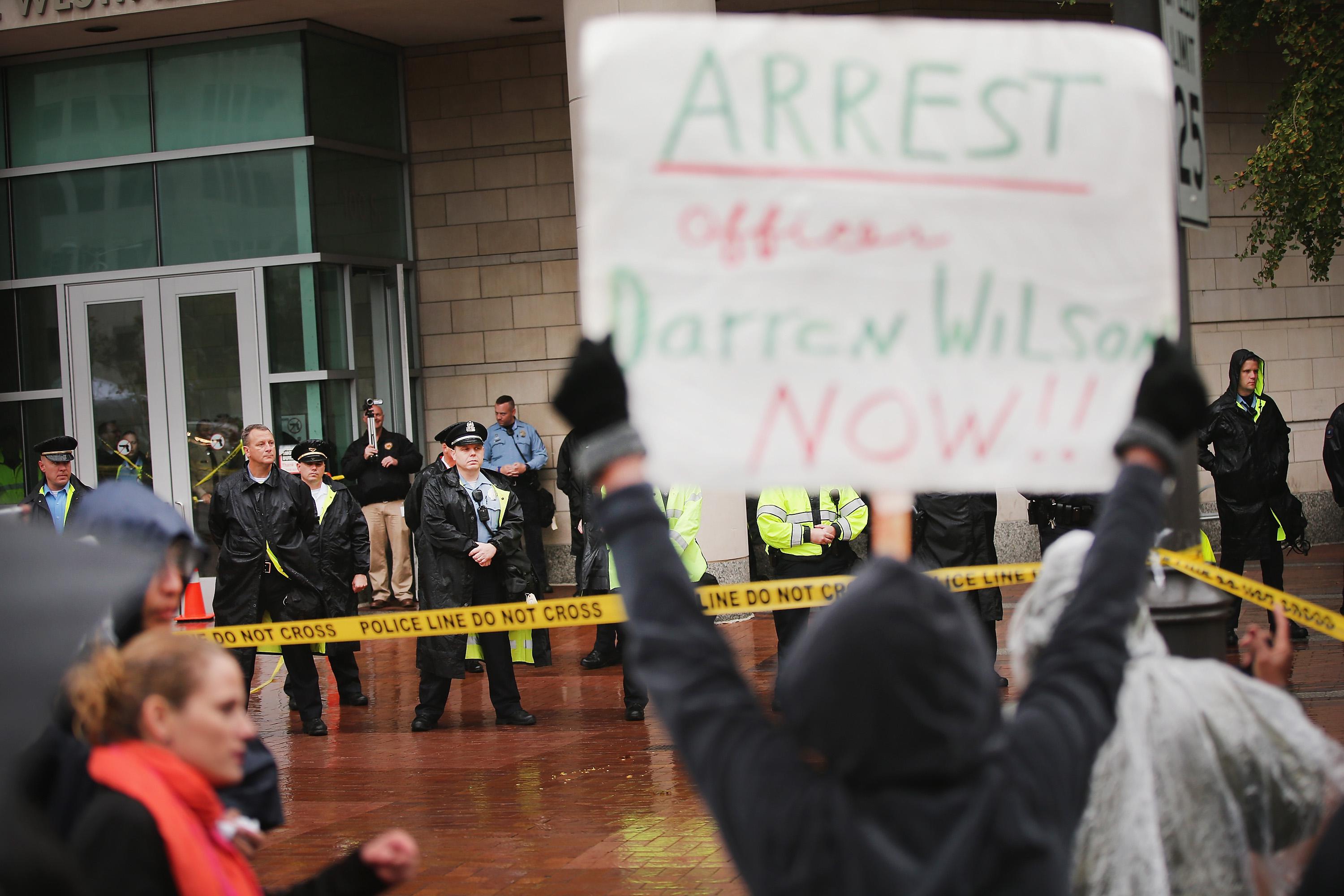What did Michael Brown’s face look like when, according to police officer Darren Wilson, Brown charged him? “It looked like a demon,” Wilson told the grand jury in his testimony. This is a highly unusual way to talk about someone in an official legal context, and so it’s useful to unpack the specific words Wilson used. When religiously charged language enters a courtroom, it is almost always meant literally. A handful of defendants in the past 50 years or so have blamed demons for inciting them to kill: Most famously, the “demon murder trial” of Arne Cheyenne Johnson involved a man who stabbed his landlord after claiming that the evil spirits expelled when his son underwent an exorcism took up residence in his own body. (He was convicted.) In one recent case, from South Florida, the defendant argued that the victim “gurgled and it sounded like demons”—sufficient grounds, in his mind, to stab her.
Of course, Wilson’s characterization of Brown doesn’t really fall into this tradition of literal, deranged belief. Instead it emerges, if unwittingly, from a long history of equating blackness with devilry. Literature is rife with examples: In Othello, the Moorish antihero is relentlessly compared to a demon. (When he swears that Desdemona has “gone to burning hell” for her unfaithfulness, another character rages: “O, more the angel she/ And you the blacker devil!”) Rudyard Kipling’s odious poem “La Nuit Blanche” has the narrator recount a ghastly dream in which “a huge black Devil City”—possibly representing Africa—“poured its peoples on my path.” Nor is contemporary culture immune from the association: In 2013, the History Channel infuriated liberal viewers for airing a miniseries, The Bible, that cast Satan as a Barack Obama lookalike.
Wilson’s testimony referred again and again to how insignificant he felt during the encounter. “I felt like a five-year-old holding onto Hulk Hogan,” Wilson told the grand jury. “The gun,” he concludes at one point, “was my only option.” It might seem strange that an armed police officer facing an unarmed kid on the street in broad daylight believed himself so powerless, but powerlessness is exactly what this testimony evokes. Twice Wilson introduces a detail with the phrase “The only way I can describe it is …” The gloss makes whatever comes next sound inevitable (and gives the officer’s words an aura of trauma, unforced spontaneity, or of struggling to express something horrible).
This language, too, comes from somewhere. For a recent Slate article, Matthew Hutson spoke to researchers whose findings suggest that white people are likely to envision black people as preternaturally strong, fast, and immune to pain. “You hear these stories of virtually superhuman black males charging toward the police office or posing a larger-than-life physical threat,” one scientist told Hutson.
“I know if he reaches me, he’ll kill me,” Wilson testified on Sept. 16, remembering the fatal encounter with Brown. “When he gets about 8 to 10 feet away, I look down … all I see is his head and that’s what I shot.” What the officer “knows”—that a teenager who, according to some accounts, had his hands up in surrender, is going to kill him—seems like a function of that reductive, inevitability laden phrase: “all I see.” We can’t pretend his vision wasn’t shaped by the world he grew up in. Darren Wilson saw a beast, a fighter, and a demon in Michael Brown. In his mind, he didn’t have a choice.
